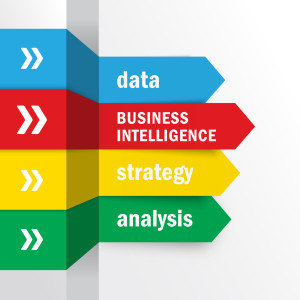BI & Business Analytics: Are They The Same?
You’ve definitely heard of business intelligence and you’ve likely heard the term business analytics before. In fact, you probably heard both terms used interchangeably, but you aren’t quite sure what the difference is. That’s expected, as some in the BI community aren’t exactly sure where the two terms diverge into separate concepts.
BI experts actually have several different interpretations as to what the differences are between the two, but there are commonalities in their personal definitions that we’ll highlight here. In this post, we’ll break it down so you have a better understanding of the unique qualities of both business intelligence and business analytics.
How Do You Define Business Intelligence?
There are many fancy words that can be thrown around in the industry, so it’s not uncommon to be overwhelmed by what each of them mean. The term business intelligence has actually been on the decline for the last 10 years in Google searches while the term business analytics has risen.
According to CIO, Business Intelligence is defined as the following:
“an umbrella term that refers to a variety of software applications used to analyze an organization’s raw data. It’s a discipline made up of several related activities, including data mining, online analytical processing, querying and reporting.”
In other words, BI is the entirety of everything you know in regards to data collection, displaying and this includes the analysis portion of the BI process.
The concept of BI (and its tools) is required to run a company efficiently by giving the decision makers the data needed to make high quality choices.
The CEO of BigData-Startups, Mark van Rijmenam makes a great point in differentiating the two concepts when he said, “…both will provide you with different, not less, insights. BI is important to improve your decision-making based on past results, while business analytics will help you move forwards and understand what might be going to happen.”
How Do You Define Business Analytics?
As many will agree that BI’s function is to maintain an organization’s efficiency with the data it provides, business analytics serves as an integral function under the BI umbrella. Analytics takes on many capabilities with several intricate tools that offer several different methods of analysis.
For example, business analytics makes use of your current data to project how your company will perform in the months to come. These functions can be conveniently stored in your BI package in the form of dashboards, reports, data mining or even applications.
Analytics is more about revolutionizing and improving upon your company with the data you collect, while BI serves as a maintenance measure to help you continue working successfully in the present.

Businessman analyzing financial data on computer screen
As the VP of Engineering at Noetix Products, Pat Roche, put it, “business intelligence is needed to run the business, while business analytics is needed to change the business.”
Still, while many experts have offered their different perspectives on what the fundamental difference is between the two, one thing is clear: both of the concepts work together to offer you solutions for your data collection efforts in the present and the future.
As the term BI has been around for decades now, business analytics is right behind it in popularity. The convenience of having analytical tools within your BI infrastructure, takes away the need to hire analysts in your team. Its integration allows your team members to take over the role and plan for the future with confidence, knowing that your analytical tools have served its purpose well.

